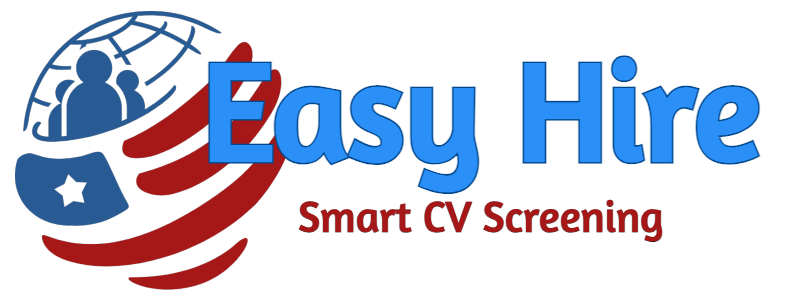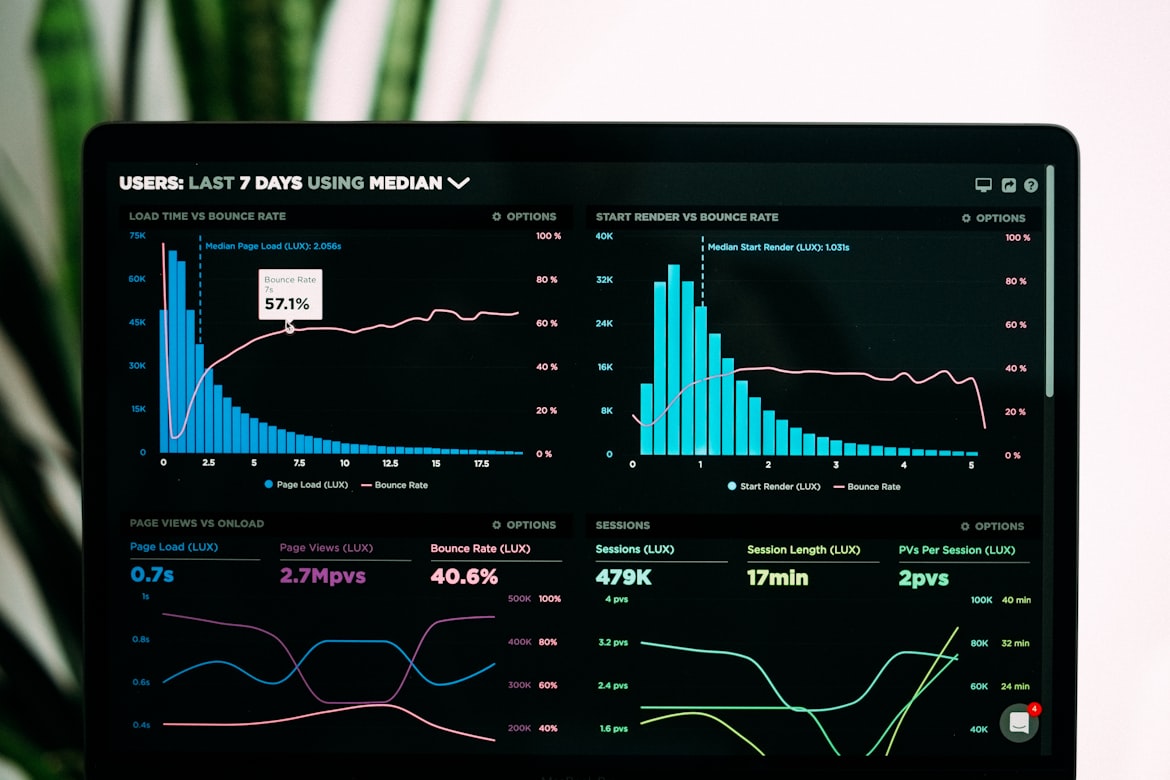How to Make Your Recruitment Process More Efficient with AI
Hiring great talent has never been easy. From screening hundreds of resumes to coordinating interviews and onboarding, the recruitment process can be both time-consuming and expensive. And let’s face it—traditional hiring methods often fall short when it comes to recruitment efficiency.
But here’s the good news: Emerging technologies, particularly artificial intelligence (AI), are changing the game. AI tools can help recruiters save time, reduce bias, improve candidate matching, and ultimately streamline the entire hiring workflow.
In this article, we’ll unpack how you can make your recruitment process more efficient using AI, walk through its key benefits, and provide actionable steps to help you integrate smart hiring technologies into your process.
—
Table of Contents
—
Why AI is the Future of Recruitment
Recruitment efficiency has become more than just a buzzword—it’s now essential for staying competitive in today’s fast-paced job market. The increasing demand for quality hires and the pressure to shorten hiring cycles and cut costs have pushed companies toward smarter recruitment strategies.
Artificial intelligence is helping recruitment teams streamline operations by managing repetitive tasks, providing insights from large volumes of data, and offering predictive analytics on candidate performance and fit. AI tools are revolutionizing how companies approach hiring.
Instead of replacing recruiters, AI empowers them. It lets HR professionals focus on what truly matters: making strategic hiring decisions and building meaningful relationships with top talent. Leveraging AI tools can significantly boost recruitment efficiency.
—
Key Benefits of AI in Recruitment
Let’s dive into the specific ways AI enhances recruitment efficiency and why you should care.
1. Automated Resume Screening
Gone are the days of manually reading through hundreds—or thousands—of resumes to find a few suitable candidates. AI tools can now automate this process, saving HR teams significant time and resources.
AI-powered resume screening programs analyze resumes using natural language processing (NLP) and machine learning. These tools can:
- Parse and categorize resumes quickly.
- Match resumes against job descriptions with a high degree of accuracy.
- Prioritize candidates based on experience, skills, and cultural fit.
Let’s take an example: A tech startup was struggling to fill a data analyst role. The recruitment team received over 800 applications. By implementing an AI resume screening tool, they narrowed it down to 50 top matches in under an hour. This not only saved time but helped them locate quality candidates they would have otherwise missed, greatly improving their recruitment efficiency.
2. Improved Candidate Matching
AI doesn’t just scan for keywords—it understands context. This is critical when trying to match the right candidate to the right role, especially in roles requiring niche skills. Effective candidate matching is a cornerstone of recruitment efficiency.
Here’s how AI improves candidate matching:
- Tracks patterns in hiring data to refine matches over time.
- Leverages data from social media profiles, portfolios, GitHub repositories, and previous job performance.
- Predicts job success rates and long-term fit.
Companies like IBM use AI to assess both hard and soft skills, ensuring alignment not just with job requirements, but with company values and team dynamics. Over time, these systems “learn” what works, continually refining their matching process and leading to better outcomes.
3. Enhanced Candidate Experience
First impressions count. And in today’s competitive market, candidates expect a smooth, respectful, and tech-savvy application process. AI tools play a vital role here.
AI improves the candidate experience by:
- Providing real-time responses through chatbots.
- Keeping applicants updated with instant notifications.
- Allowing them to schedule interviews at their convenience.
Consider Hilton Hotels. They employ AI-powered chatbots to answer candidate questions, guide them through applications, and even schedule interviews. This level of responsiveness has reduced their candidate drop-off rate and significantly improved satisfaction scores, boosting overall recruitment efficiency.
4. Data-Driven Decision Making
AI tools aren’t just about automation—they’re about intelligence. One major benefit is the ability to capture and analyze recruitment metrics in real time.
With AI, your team can track:
- Time-to-hire
- Cost-per-hire
- Candidate engagement rates
- Diversity in hiring
- Application completion rates
This makes it easier to pinpoint bottlenecks and improve your strategy. For example, if your applicant drop-off rate spikes at a specific step, your AI dashboard will highlight it, enabling you to step in and fix the problem.
Recruitment efficiency isn’t just about doing things quickly—it’s about doing them smartly. And data is the foundation of smart hiring.
5. Reduced Bias in Hiring
We all have unconscious biases, but when it comes to hiring, these can result in unfair or unbalanced decision-making. AI, when built and deployed responsibly, can help reduce these biases and promote inclusivity. This ethical approach contributes to long-term recruitment efficiency by building diverse, high-performing teams.
AI tools analyze candidates based solely on objective factors—skills, experience, and qualifications—removing subjective variables like names, photos, or schools attended.
However, it’s important to note that AI is only as unbiased as the data it’s trained on. Therefore, it’s crucial to use AI platforms that have been tested and audited for fairness and equity. For more on this, organizations like the World Economic Forum provide resources on responsible AI.
Companies like Microsoft and Accenture are actively using AI to meet diversity and inclusion targets, leveraging its power to make their recruitment more equitable and transparent.
—
Real-World Examples of AI in Recruitment
Seeing is believing. Here are some companies that have successfully integrated AI tools into their recruitment process with impressive results, enhancing their recruitment efficiency:
- Unilever: They adopted an AI-based hiring process involving online games and AI-powered video analysis. Candidates are assessed on traits like curiosity, adaptability, and decision-making. The result? A 75% reduction in hiring time and improved candidate diversity.
- Hilton: The hotel giant implemented chatbots to automate communication with candidates. This small tweak led to a 90% reduction in time spent on administrative tasks like scheduling and answering FAQs.
- L’Oréal: Faced with massive application volumes, L’Oréal introduced an AI platform to pre-screen and engage candidates. The system evaluates language, tone, and facial cues in video interviews. Outcome: faster hiring decisions and a better experience for both recruiters and applicants.
These real-life cases show that AI isn’t just theory—it’s a proven solution driving real results in recruitment efficiency.
—
How to Implement AI in Your Recruitment Process
Ready to bring AI into your hiring strategy? Here’s a step-by-step guide to help you implement AI tools effectively and responsibly to improve your recruitment efficiency.
1. Identify Pain Points
Before choosing any technology, take a close look at your current recruitment process. Where are the bottlenecks?
Common issues include:
- High volume of unqualified applicants
- Long time-to-fill metrics
- Poor candidate communication
- Inconsistent interviewing processes
- Limited tracking of recruitment performance
Talk to your team and review key metrics to pinpoint areas where AI can make the biggest difference.
2. Choose the Right AI Tools
Once you’ve identified your challenges, it’s time to select the AI tools that best solve them. Some popular categories include:
- AI Resume Screeners (e.g., HireVue, Pymetrics)
- Conversational Chatbots (e.g., Mya, XOR)
- AI Interview Scheduling Tools (e.g., Calendly integrated with AI assistants)
- Predictive Analytics Platforms
- AI-driven Skill Assessments (e.g., Codility, TestGorilla)
Don’t rush—it’s important to demo platforms, consult reviews, and even speak to other users before making a decision. Many AI tools offer specialized features for different aspects of recruitment efficiency.
Tip: Choose tools that integrate easily with your existing Applicant Tracking System (ATS) or Human Resource Information System (HRIS) for seamless deployment.
Sample AI Tool Components:
Imagine an input field for searching candidates:
And a call-to-action button:
3. Train Your HR and Recruitment Team
Technology is only as good as the people using it. Make sure your team is fully trained on how to use your chosen AI tools and understands the value of AI in recruitment.
Training should cover:
- How to interpret AI-driven analytics
- Techniques for auditing AI decisions and outputs
- Best practices for maintaining fairness and compliance
- When to rely on AI vs. human intuition
Ongoing learning is just as important—build a feedback loop for your team to share their experiences and update their workflows as the technology evolves. This is crucial for sustained recruitment efficiency.
4. Monitor and Optimize
After implementation, it’s essential to track performance and optimize accordingly.
Key KPIs to track include:
- Reduction in time-to-hire
- Improvement in candidate engagement
- Increase in qualified applicant rates
- Diversity ratios in shortlists and hires
AI is not plug-and-play—it needs regular evaluation and refinement. Many platforms offer built-in dashboards, but you should also consider conducting internal audits to ensure that your AI system is delivering on its promise.
Remember: Recruitment efficiency is not a one-time fix—it’s a continuous process of learning, evolving, and optimizing with your AI tools.
—
Conclusion: Embrace AI for Smarter Hiring
The recruitment landscape is rapidly evolving, and staying competitive means embracing new technologies. AI tools have the power to transform recruitment efficiency by removing friction, improving decision-making, and creating better experiences for candidates and recruiters alike.
From reducing the time it takes to screen resumes to enhancing candidate interactions and minimizing unconscious bias, the benefits of AI are vast.
If you’re serious about improving your hiring outcomes, now is the time to start exploring the AI recruitment benefits. Visit Easyhireapp’s blog to discover more about how innovative AI solutions can help your organization thrive.
In a world where top talent gets snapped up quickly, the recruitment efficiency of your hiring process can be the difference between landing the perfect fit—or missing out.
So, what are you waiting for? Start your AI recruitment journey today.
—
Embracing AI doesn’t mean giving up the human touch—it means hiring smarter, faster, and more inclusively. It’s time to modernize your strategy and let data-driven decisions lead the way to better hires. Using the right AI tools is key to unlocking unparalleled recruitment efficiency.
Ready to take the leap? Equip your recruitment team with the best AI tools and see how fast and efficient hiring can truly be.
—
Frequently Asked Questions (FAQs)
1. What is AI in recruitment, and how does it work?
AI in recruitment refers to the use of artificial intelligence technologies—like machine learning, natural language processing, and predictive analytics—to automate and enhance various stages of the hiring process. It works by analyzing large datasets, identifying patterns, and making data-driven decisions to streamline tasks such as resume screening, candidate matching, and interview scheduling. This significantly improves recruitment efficiency.
2. Can AI replace human recruiters?
No, AI is not meant to replace human recruiters. Instead, it empowers them by handling repetitive and time-consuming tasks, allowing recruiters to focus on strategic decision-making, candidate engagement, and building relationships with top talent. AI tools augment human capabilities.
3. How does AI reduce bias in hiring?
AI reduces bias by focusing on objective criteria—such as skills, experience, and qualifications—and ignoring subjective factors like names, photos, or educational backgrounds. However, it’s important to ensure that the AI tools are trained on unbiased data and regularly audited for fairness.
4. What are some common AI tools used in recruitment?
Common AI tools include:
- Resume screeners (e.g., HireVue, Pymetrics)
- Conversational chatbots (e.g., Mya, XOR)
- Interview scheduling tools (e.g., AI-integrated Calendly)
- Predictive analytics platforms
- AI-driven skill assessment tools (e.g., Codility, TestGorilla)
These tools help boost recruitment efficiency.
5. How can I ensure my AI recruitment tools are effective and fair?
To ensure effectiveness and fairness:
- Regularly audit the AI tools for bias and accuracy.
- Train your HR team to interpret and validate AI outputs.
- Monitor key performance indicators (KPIs) like time-to-hire, candidate diversity, and engagement rates.
- Use AI as a supplement to human judgment, not a replacement.
6. What challenges might I face when implementing AI in recruitment?
Common challenges include:
- Resistance from the HR team or stakeholders.
- Ensuring the AI tools integrate seamlessly with existing systems.
- Managing data privacy and security concerns.
- Selecting the right AI tools tailored to your specific needs and recruitment efficiency goals.
7. How can AI improve the candidate experience?
AI improves the candidate experience by:
- Providing instant responses to inquiries through chatbots.
- Offering real-time updates on application status.
- Enabling candidates to schedule interviews at their convenience.
- Creating a more personalized and engaging hiring journey.
8. Are there industries where AI recruitment tools are more effective?
AI tools can benefit all industries, but they are particularly effective in sectors with high application volumes, like tech, healthcare, retail, and hospitality. They also excel in roles requiring niche skills or a high degree of cultural fit, where recruitment efficiency is paramount.
9. How long does it take to see results after implementing AI in recruitment?
The timeline varies depending on the tools used and your organization’s readiness. However, many companies report noticeable improvements in recruitment efficiency, such as reduced time-to-hire, within weeks or months of implementation.
10. Where can I learn more about AI recruitment tools?
Visit Easyhireapp’s blog for in-depth insights, case studies, and guides on using AI tools to enhance your recruitment process and improve recruitment efficiency.




